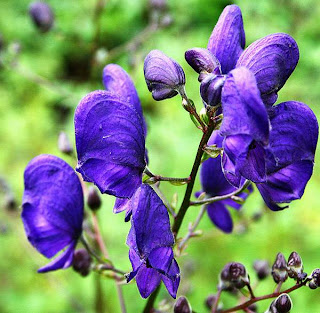 I mean really.
I mean really.With name like Bloody Dock, I expected high magic of the Dumbledore level.
Perhaps re-animation powers that produces shuffling zombies?
Maybe the secret ingredient for incantations that allow the user to pass through the veil between the worlds?
Apparently my imagination is better than that of the ages, because even its name couldn't save Bloody Dock from being considered a weed (not the fun kind, just a stupid weed).
It is associated with healing, fertility and money (I should mention here that I personally have never noticed any connection between fertility and having money).
The seeds can be used as incense to draw money to the user, or to gain employment (on second thought perhaps this little weed is one of the great well-kept secrets), or, the leaves can be tied to the left arm to help with conception.
This particular little plant loves a wet environment, but will tolerate a dryer planting out in the garden. It thrives sitting directly in water, which is the reason I have it sitting in my fountains.
Just keep those leaves well away from my left arm.




 Best of all, especially during this Halloween season, thyme can be tucked into pillows where it will guard against nightmares.
Best of all, especially during this Halloween season, thyme can be tucked into pillows where it will guard against nightmares. 

















